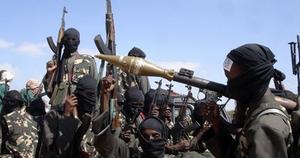TerrorismTerrorism hobbles business investment in north, east Africa
Images of the terrorist attack in Nairobi’s Westgate Mall have reinforced the belief that business investment in those parts of Africa where terrorist groups are active is risky despite improvements in living standards.

Terror attacks dampen enthusiasm for investment // Source: siasat.pk
Images of the terrorist attack in Nairobi’s Westgate Mall have reinforced the belief that business investment in those parts of Africa where terrorist groups are active is risky despite improvements in living standards.
The luxury market in North Africa was once considered to offer a viable business opportunity for retailers, but it is this same viability, and what it represents, which attracted the recent attacks. The Westgate Mall symbolized new wealth and foreign influence at a time of revolution and conflict in the Middle East and North Africa. “The reason we targeted Westgate is that we know it’s a place where they feel the most pain,” an al-Shabaab leader told British television station Channel 4. “It’s because it brings in a lot of money and is in the center of the city.”
The Washington Post reports that North and East African countries like Morocco, Kenya, and Egypt used to appear regularly on A.T. Kearney’s global retail development index because of their attractiveness as tourist destinations and for having a high density of wealthy people in well-developed cities.
The Arab Spring has now weakened the region’s attractiveness to wealthy residents who have alternative sites within a shirt flight, such as Dubai or Milan, for luxury experiences. “Poverty will continue to be an issue, but with Africa’s growth, the important thing holding back global organized retail will be political and business risk,” A. T. Kearney’s senior partner Mike Moriarty told the Post. “And the shootings in Nairobi certainly do not diminish the concern of luxury brands and global mass retailers making the significant human and asset investment requirement to be a successful retailer.”
Investors are still focusing major initiatives on countries like Brazil, Chile, and India which serve as popular tourist destinations. Smaller yet stable countries in Africa such as Botswana and Namibia possess enough wealthy residents to support luxury retail in their major cities.
For investments in North Africa, wealth and peace are the keys, but the former does not guarantee the latter.
